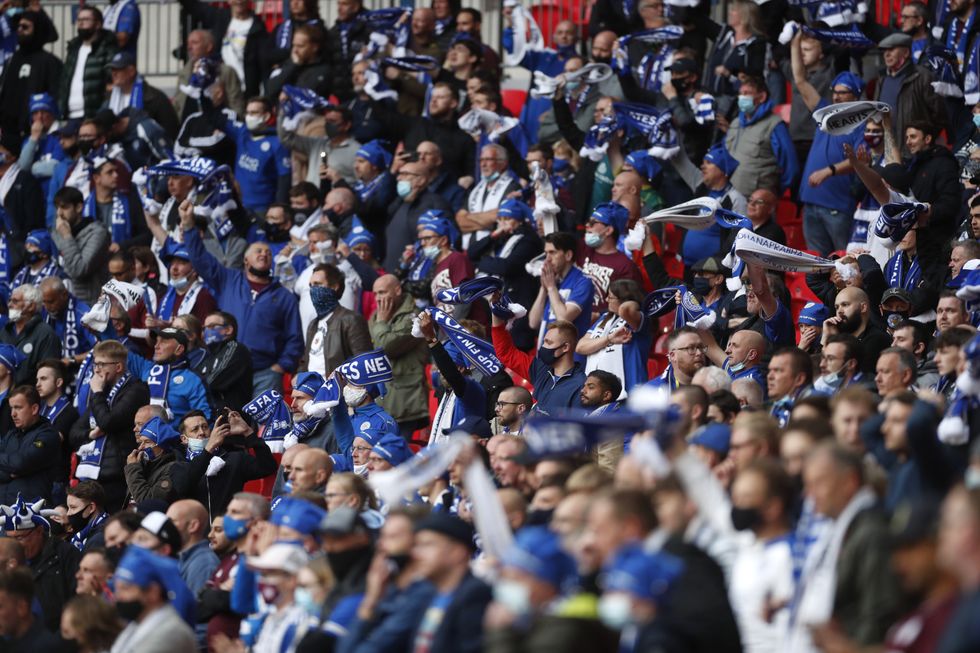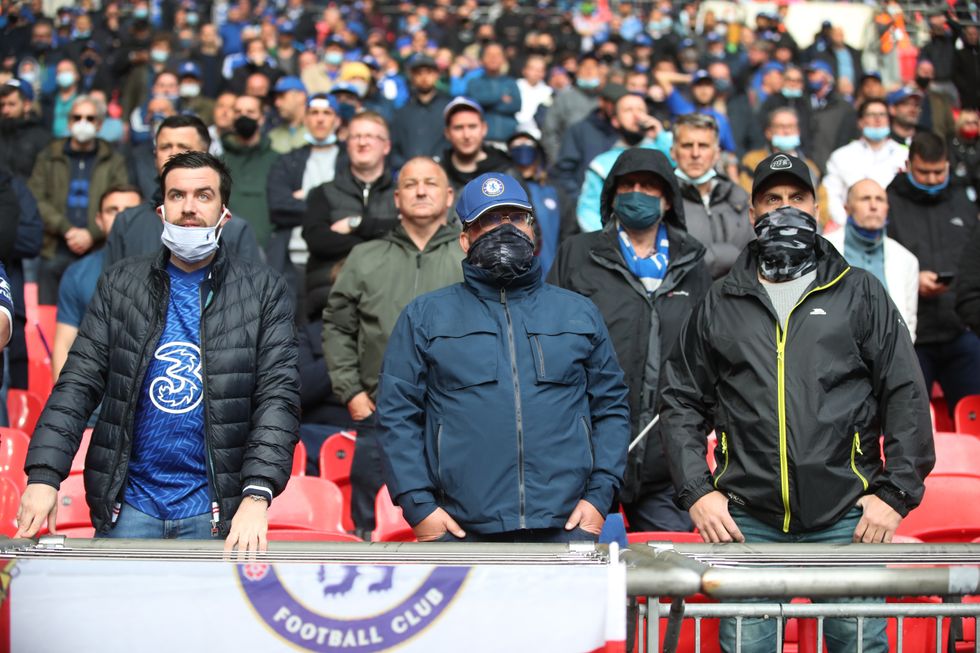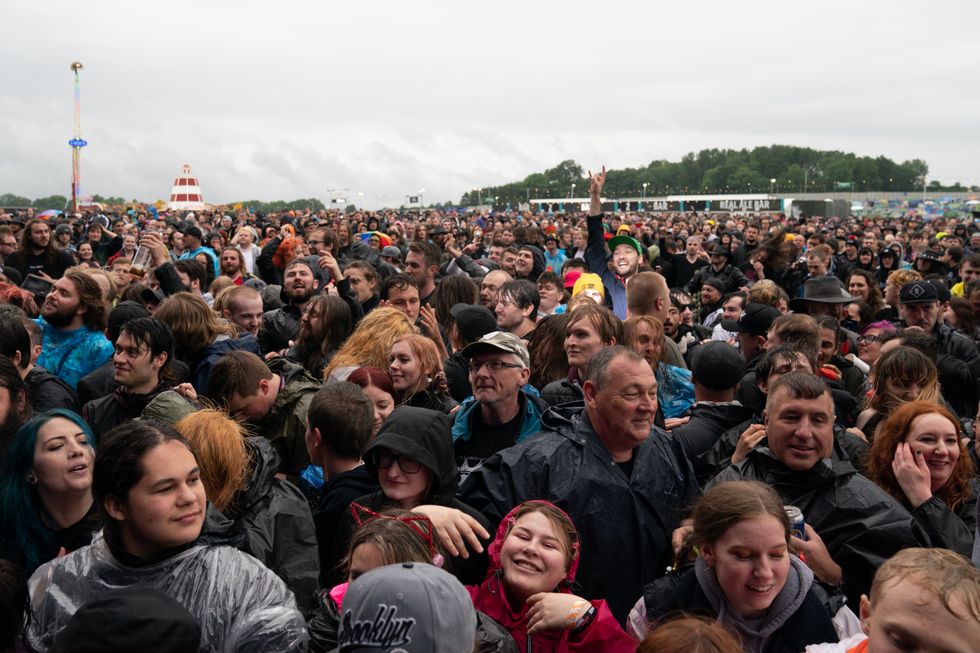Covid: Sporting test events produce 14 positive coronavirus cases among 40,000 attendees


In all, 28 positive cases were linked to the nine events, with 58,000 people attending
Don't Miss
Most Read
Latest
There were just 14 positive Covid-19 cases among more than 40,000 people who attended sporting events in the first phase of the Government’s pilot programme aimed to get spectators back into venues in significant numbers.
However, a report on the first phase of the Events Research Programme (ERP), which covered nine sporting and cultural events taking place in April and May, said the figures on cases related to the events should be treated with “extreme caution”.
It cited the necessarily limited scale of the events, the low prevalence of coronavirus at the time and, most crucially, the low rate of return for PCR tests before and after the events. Just 15 per cent of attendees returned both tests.
In all, 28 positive cases were linked to the nine events, with 58,000 people attending. The report said it was “hard to know” if the positive post-event tests were the result of transmission at the event, and that the poor PCR return rate “significantly limits” the evidence of direct transmission at events.
The report said 11 of these individuals were “potentially infectious at an event”, with a further 17 potentially infected at or around the time of the event.
Viral genetic analysis is being completed to see if those cases are linked to the events or not, the report said.
Eight positive Covid-19 cases were recorded among the 30,000 people who attended the FA Cup semi-final, FA Cup final and Carabao Cup final.
A further six were recorded among more than 10,000 spectators who attended the 17 days of the World Snooker Championship. The report said the return rate of PCR tests for the early stages of the event at the Crucible Theatre in Sheffield were “extremely low”, blaming the fact that participants had to order them online.
Return rates improved for later events such as the FA Cup final, when attendees had PCR tests automatically posted out to them. The first day of the World Snooker Championship on April 17 was the first sporting event to welcome spectators in England since the tier system was scrapped at the end of December.
Chelsea fans show their dejection after Leicester City's Youri Tielemans scores the opening goal during the Emirates FA Cup Final at Wembley Stadium, London. Picture date: Saturday May 15, 2021.
Nick Potts
The report also highlighted that even with entry being conditional on proof of a negative lateral flow test within 36 hours of the event, some potentially infectious people will still be admitted.
This, the report says, indicates “a need for robust outbreak control procedures to be in place”.
The report found that, with the exception of the event at the Circus nightclub in Liverpool, a person attending an ERP event experienced a lower level of cumulative exposure to the virus than attending a well-ventilated multi-person office for six hours.
Evidence gathered from the three football matches found that bacterial cell counts on surfaces and in the air increased as crowd sizes increased.
The report highlights that large indoor events with high crowd density and proximity “may pose a higher potential risk of transmission as a result of close proximity and poor ventilation”.
However, rules on wearing face coverings were better observed at indoor events, the report found, with 98.3 per cent in sample areas compared to 92.1 per cent at outdoor events, or events with a substantial outdoor element.
The ERP is looking at ways to allow spectators to return to sports venues in significant numbers amid the pandemic, and a third phase will include the final four Euro 2020 matches at Wembley, Formula One’s British Grand Prix and Wimbledon.
The Government said there are “live discussions” going on with a view to adding further events to the third phase, which will focus on certification via proof of a negative test or full vaccination.
The second phase of the ERP was completed this month and included the Euro 2020 group matches at Wembley, Royal Ascot and the England v New Zealand Test match at Edgbaston.
Sports clubs and governing bodies are keen to see what the Government will announce ahead of the scheduled final easing of restrictions on July 19, but the ERP report simply stated: “No decisions have been taken on the full reopening of mass events. The government will set out its position on this ahead of Step Four in the roadmap.”
Currently, events not included in the ERP are operating to strict attendance limits.
For outdoor venues with a seated capacity of 16,000 or above, the limit is 10,000 or 25 per cent of capacity, whichever is lowest.
For outdoor venues with less seating than that, the limit is 4,000 or 50 per cent of capacity, whichever is lowest. For indoor venues, the limit is 1,000 or 50 per cent capacity, whichever is lowest.
Festivalgoers on the first day of Download Festival at Donington Park in Leicestershire.
Joe Giddens
UK Music chief executive Jamie Njoku-Goodwin said of the live events pilot report: “The Events Research Programme data vindicates the massive efforts and innovations our sector has made to restart the live music industry.
“Now we have evidence showing events can take place safely, the Government must now give the green light for events to go ahead without social distancing from July 19.
“With 60,000 fans expected at Wembley for the Euros, thousands at Wimbledon and a capacity crowd of 140,000 at the Silverstone Grand Prix, it is only right that major live music events are also able to proceed safely.
“We will continue talking to the Government to get as many live events back on stage as possible from the expected July 19 reopening date to deliver a great British summer of music.
“It is particularly welcome that the data shows there were no infections at the 3,500-capacity Brit Awards.”












